Hope Sal Comes Back

hope sal comes back
More Posts from Nastysynth and Others

Hi, I'm sorry if this has been asked before, but I adore your arcana style cgs and I was wondering if you had any tips for replicating the arcana style?
m, this is a bit tricky to answer because I’m not confident enough in how I draw the style to make any sort of guide. But in trying to replicate it, I kind of noticed some things?
Note: I like to learn styles through deconstruction and looking at processes. I recommend watching the CG timelapse at 0.25x speed here (x) and looking at some of the CG process/concept art here (x)
Please forgive the rambliness of this under the cut. These are just the notes I make to myself when I try and figure out a style.
Czytaj dalej
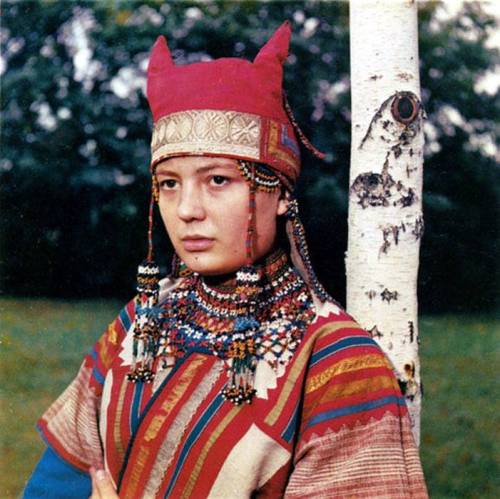
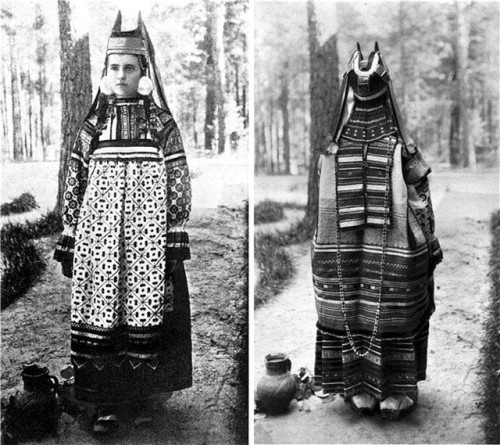
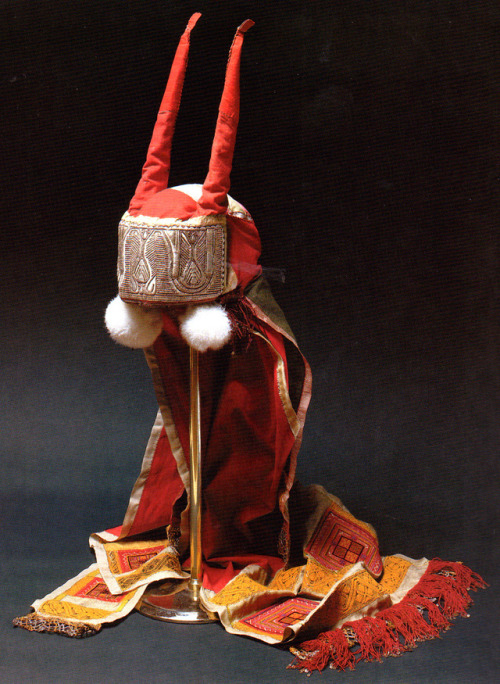
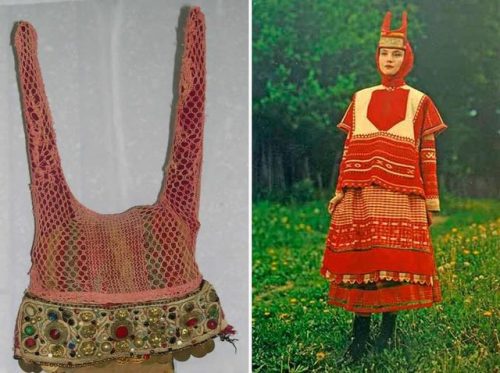
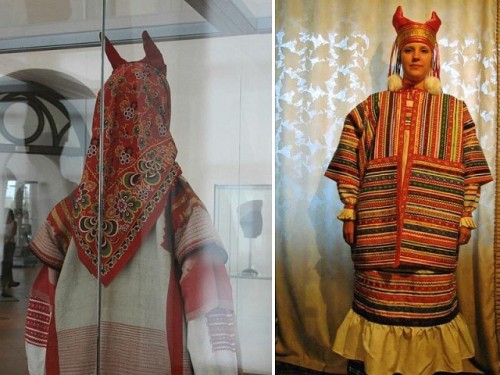
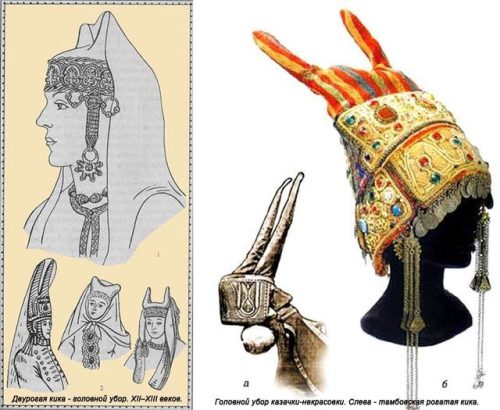
Horned kichka (Russian: рогатая кичка) is a type of ancient russian headdress for a married woman.
The horned kichka was a fertility symbol, and it served as a protection against evil spirits.

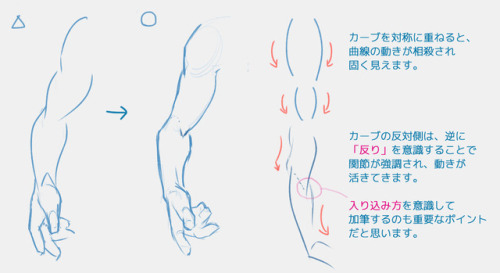

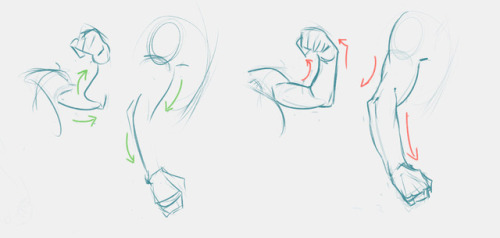
I would like to make a new bunch of tutorials… I wish I could carry out my intention. Incidentally, It’s going to be “How to draw poses by using gesture drawing method ”,
need refs/inspo for period clothing?
here you go:
Medieval (9th-15th century):
10th century and earlier
Romance (1000-1250)
11th century
12th century
13th century
more 13th century
14th century
more 14th
15th century
and more 15th century
Gothic (1150-1550)
Renaissance (1520-1650)
16th & 17th century
16th century
more 16th
Tudors (1500-1550)
more Tudors
Elizabethan Period (1558-1603)
Jacobean Era (1603-1625)
17th century
more 17th century
and again
and even more
this won’t stop
Baroque (1600-1750)
Georgian Period (1714-1830):
18th century
more 18th century
18th century women’s fashion
18th century men’s fashion
Rococo (1720-1770)
Classicism (1770-1790)
children 18th-19th century
Regency Preiod (1811-1820)/ Empire (1800-1820s):
1790-1820s
more stuff on regency and georgian era
even more
that’s not enough regency
and more
how is there so much
early 19th century men’s wear
early 19th century women’s wear
Victorian Period (1837-1901):
Romantic Era (1820-1840s)
Civil War Era/1850-1860s
1870-1890s
more victorian
Edwardian Period (1901-1910):
1900-1910s
Belle Epoque (1880-1910s)
more edwardian/belle époque
Modern:
1910s-1920s [Fashion between the World Wars]
1920s
more roaring 20s
so much 20s
1920s hairstyles
1930s
1930-1940s
1930-1950s
1950s
more 50s
1960s
1960-1970s
1980s
lots of periods in one spot/fashion through centuries:
here, here, and here is almost everything (and properly ordered)
also here with lots of historic fashion magazines
100 years of beauty (includes lots of other cultures too!)
historic fashion
costumes of antiquity
more historical clothing
history of fashion
more history of fashion
“vintage” clothing
historic costumes
children’s historical fashion/toys
details
historic wedding dresses
historic assecoires (hats, shoes…)
hats
masks
parasols
lots of embroidery/jewlery
Short disclaimer: Most pictures show clothes of royalty, aristocracy, and burgoisie as their clothes weren’t worn as much and especially not for labour, which is the issue with farmers/workers’ clothes, which also were reused quite often, whether to sew new clothes or have rags. So please keep this in mind!!
It really is very European-centric as I am European as well, and I apologise for it if you expected more from it. I definitely lack the knowledge to determine what are accurate portrayals of other cultures, and to find content for them is really difficult as well. This is why I would encourage you to submit any resources you have to my blog! If you have any book recs or know good pages, please let me know!
Another edit/note: Pinterest has changed a lot since I made the post, so you need to be signed in now to see more than the first row of the boards, I’m really sorry about that! (Also I tested all the links and on my original post they still work, if you’re having isues with that.)
How do you draw noses?
I’m not sure what specific part you’re wondering about, so here’s a run-through of my process from sketching to painting!
1) The first thing I do is simplify the nose into a few basic shapes to get a prism-like block, like so:

2) I can now easily draw the prism shape in three-dimensional space depending on the angle and rotation of the head.

3) Using the guidelines/planes I can draw a proper nose in any angle! There aren’t many tricks or shortcuts for this step, unfortunately (other than practicing lots). I recommend using references, they’re always helpful :)
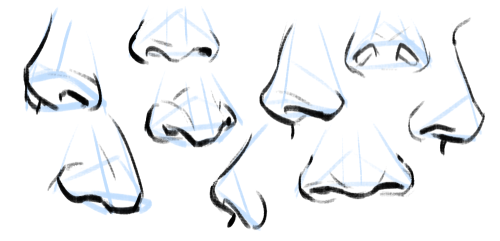
4) Really important to note: all noses vary greatly, especially from different ethnicities! A high-bridge “aristocratic” sort of nose or a ski-slope button nose might be accurate for some people, but definitely not everyone. Compare differences in size, width, a hooked or button nose tip, high or low nose bridge, and so on:

5) Then I paint! I have a skin tone tutorial here, if it helps. Take note of the lighting, skin tone, etc. Here are some things I keep in mind:
For pale skin tones, the nose sometimes has a redder colouration than the rest of the face because of increased blood flow.
The nose also usually has highlights (due to oil). These are located on the tip of the nose, the nostril groove, and where the base of the nose meets the flat area of skin around it!

Hope this helps! In the end, all stylistic choices are completely up to you. Art’s subjective, so feel free to draw any noses you want :)
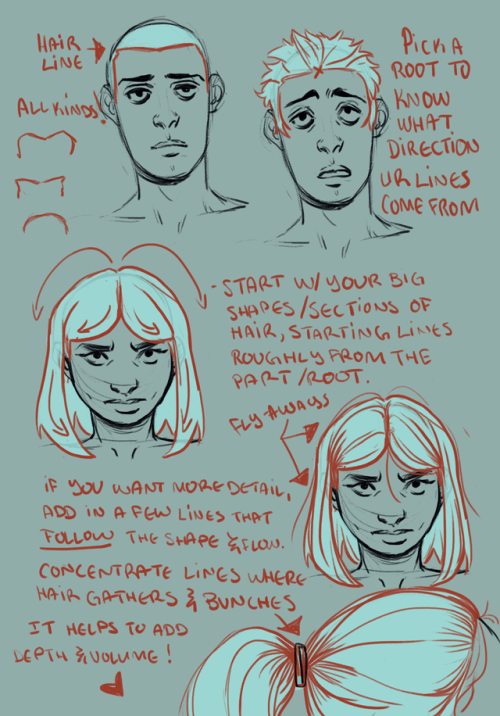
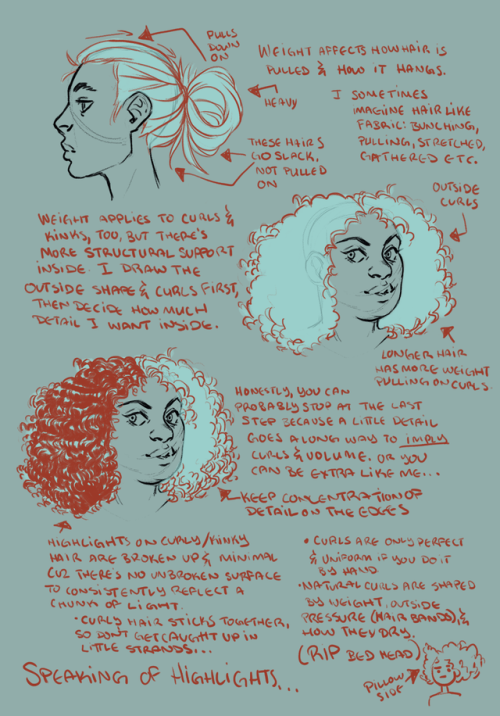
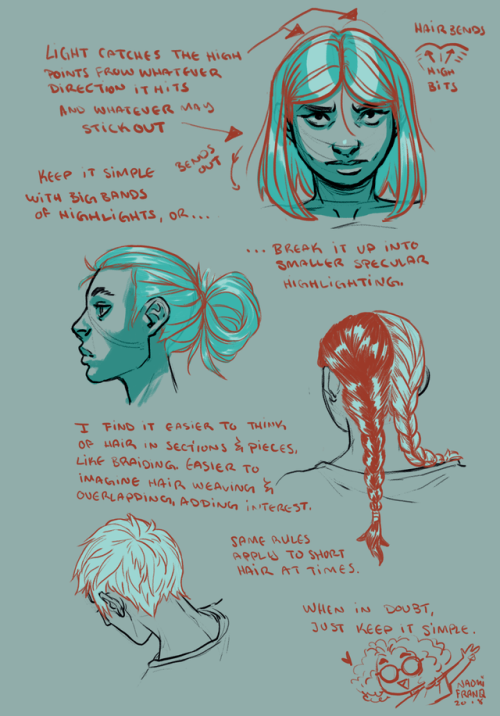
I jotted down for a friend of mine some tips and notes on how I approach drawing hair, and things I keep in mind while doing so, and thought I’d share. There are loads of other ways to do it, and the learning never stops, so I hope this helps!
Could you do one on how to draw facial features? Lihow do draw nose? How do draw eyes? How do draw lips/mouths? Esp at different angles







this is a more holistic look at drawing faces in perspective
each individual feature could really be its own tutorial
hope this helped!



















Not the same Anon, but hyacinths please
Hi friend, thank you so much for your interest! I’m going to go over how I draw these flowers, but I realized midway that I’m actually very terrible at drawing these in particular, haha. There’s a reason I’ve lowkey avoided doing them so far, and I think it enabled me to highlight a bit more, the way I choose my arts.
It’s quite hard to teach just “how to draw a specific flower” mostly because I myself don’t know - the most important thing I can emphasize is using references!

I personally dislike drawing these flowers in my art, and I couldn’t figure out why until I started this tutorial.
One thing I tend to notice when I look at reference pictures is how flowers move as a ‘whole’ and their relative ‘flexibility’. I pay attention to that because the way I do art, I choose the flower in part based on appearance and how natural they will look in a specific composition.

I tend to like flowers that sprout outwards and have a kind of ‘loose’ appearance. The red lines here show the ‘direction’ I want the flowers to go in.

This is where these flowers pose a bit of a problem. Because arranged in clumps, they are very stiff. It’s not a bad thing if that’s what you’re looking for, but it’s not what I wanted, exactly, for this image.

They just stick straight up, because they have very stiff leaves and a tight packed pattern. (They sometimes tilt though, mine always did). At this point, I could decide the form isn’t right, and this isn’t the flower I want. But there’s also another thing I could do, which is altering it’s appearance when I draw it, slightly.

Left is a simplified version of the shape, while the middle is a more detailed image. The furthest to the right is a close-up of a single flower. Depending on what you want to portray, you can choose to alter what you want your flowers to look like.

As you can see, when drawn closer up, the flower has a lot more flexibility!

So with this, I ended up drawing the batch of flowers a lot larger than how it would be normally, while still retaining the recognizable flower and leaf shape.
So what I’m trying to convey is that sometimes you have to study references, but then know you can pick and choose what aspects to highlight in your art. That’s I think, how you can get your flowers to look extra ‘dynamic’ in your work - by accentuating their specific shapes to work to your advantage! And also playing with their colors and such! But hyacinths come in so many colors that any would work!
I hope this is helpful to you, anon!
-
 skeet-2 liked this · 2 years ago
skeet-2 liked this · 2 years ago -
 daz4i reblogged this · 2 years ago
daz4i reblogged this · 2 years ago -
 fazmid reblogged this · 2 years ago
fazmid reblogged this · 2 years ago -
 yourubersawcrit liked this · 2 years ago
yourubersawcrit liked this · 2 years ago -
 my-thoughts-and-junk reblogged this · 3 years ago
my-thoughts-and-junk reblogged this · 3 years ago -
 mariekrueger reblogged this · 4 years ago
mariekrueger reblogged this · 4 years ago -
 n4hj0 liked this · 4 years ago
n4hj0 liked this · 4 years ago -
 cambrianangel liked this · 4 years ago
cambrianangel liked this · 4 years ago -
 this-is-your-last-dance reblogged this · 5 years ago
this-is-your-last-dance reblogged this · 5 years ago -
 this-is-your-last-dance liked this · 5 years ago
this-is-your-last-dance liked this · 5 years ago -
 shitmysossay liked this · 5 years ago
shitmysossay liked this · 5 years ago -
 therealbrigeedarocks liked this · 5 years ago
therealbrigeedarocks liked this · 5 years ago -
 bittylildragon reblogged this · 5 years ago
bittylildragon reblogged this · 5 years ago -
 tzniusbutch liked this · 5 years ago
tzniusbutch liked this · 5 years ago -
 gucci-depressione liked this · 5 years ago
gucci-depressione liked this · 5 years ago -
 wolf-mask liked this · 5 years ago
wolf-mask liked this · 5 years ago -
 pringle-dingle liked this · 5 years ago
pringle-dingle liked this · 5 years ago -
 hanorunoruah liked this · 5 years ago
hanorunoruah liked this · 5 years ago -
 proofthatihaveaheart reblogged this · 5 years ago
proofthatihaveaheart reblogged this · 5 years ago -
 depvotee liked this · 5 years ago
depvotee liked this · 5 years ago -
 devillix reblogged this · 5 years ago
devillix reblogged this · 5 years ago -
 gradientauhomestuck liked this · 5 years ago
gradientauhomestuck liked this · 5 years ago -
 nastysynth reblogged this · 5 years ago
nastysynth reblogged this · 5 years ago -
 nastysynth liked this · 5 years ago
nastysynth liked this · 5 years ago -
 super-dimension-fortress liked this · 5 years ago
super-dimension-fortress liked this · 5 years ago -
 y0mega99 liked this · 5 years ago
y0mega99 liked this · 5 years ago -
 sealachii reblogged this · 5 years ago
sealachii reblogged this · 5 years ago -
 ladyraeka liked this · 5 years ago
ladyraeka liked this · 5 years ago -
 tac04 reblogged this · 5 years ago
tac04 reblogged this · 5 years ago -
 tac04 liked this · 5 years ago
tac04 liked this · 5 years ago -
 why-yes-i-am-an-adult reblogged this · 5 years ago
why-yes-i-am-an-adult reblogged this · 5 years ago -
 cityofglitches liked this · 5 years ago
cityofglitches liked this · 5 years ago -
 springinhershield reblogged this · 5 years ago
springinhershield reblogged this · 5 years ago -
 cliffe reblogged this · 5 years ago
cliffe reblogged this · 5 years ago -
 springinhershield liked this · 5 years ago
springinhershield liked this · 5 years ago -
 cyberpunkfan liked this · 5 years ago
cyberpunkfan liked this · 5 years ago -
 sunshineram liked this · 5 years ago
sunshineram liked this · 5 years ago -
 thethysmc liked this · 5 years ago
thethysmc liked this · 5 years ago -
 capriciouscellist reblogged this · 5 years ago
capriciouscellist reblogged this · 5 years ago -
 bluefbread reblogged this · 5 years ago
bluefbread reblogged this · 5 years ago -
 nliast liked this · 5 years ago
nliast liked this · 5 years ago

Sylwester | i will mostly post sketches, because i'm too lazy to end them
196 posts